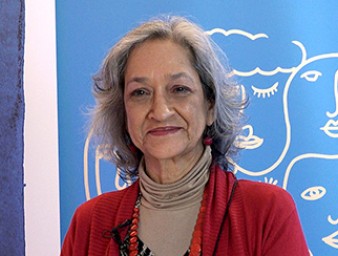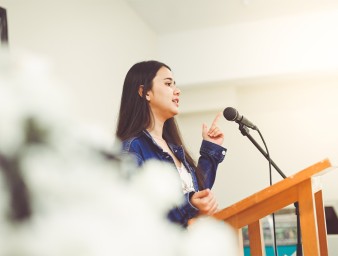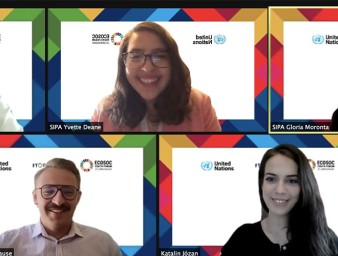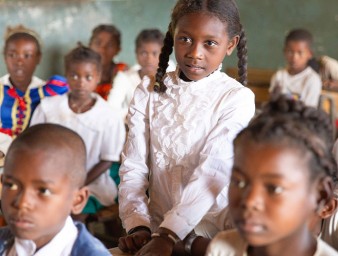Assisting Communities Together: ACT promoting human rights education
22 May 2013

Neime Ismaili, 24, is a Human Resources Management graduate student who wants to take part in the political life of her community in the former Yugoslav Republic of Macedonia. “I want to have a say; I want my voice to count in the place where I live,” she says. “I can no longer observe, complain and stay out; I want to get involved and make a difference for Roma women.”
Ismaili is one of 34 young Roma women and men who lobbied for greater participation of Roma women in politics within the ‘Roma Women can do it 2’ project. As a result, many of them felt empowered and determined to make their community a better place. This project was implemented by the Women’s Civic Initiative, Antico, an organization promoting gender equality, which was supported with a grant from the United Nations.
The grant is part of the Assisting Communities Together (ACT) project, a joint initiative of the Office of the United Nations High Commissioner for Human Rights and the United Nations Development Programme.
Silva Pesic, the Human Rights Advisor with the UN team in the former Yugoslav Republic of Macedonia says the ACT project has been very effective. “ACT changed the lives of many people who could not benefit from formal human rights education or learn about their rights. A few of them have now devoted their future work to the promotion and protection of the rights of others and their communities,” says Pesic.
This year, another ACT grant enabled the National Council for Gender Equality (NCGE) to empower 60 rural youth to identify and work on their common priorities. German language student Bejtula Bushin, 21, was one of those who joined informal youth groups and attended advocacy and lobbying trainings. “I had been following the global youth movement for a long time and wished that young people here could also unite across party lines and work together for a better future. This project made my dream come true,” says Bushin, who is a founder and President of the first-ever non-governmental organization (NGO) in his municipality of Aracinovo near the capital of Skopje.
“We gave them the building blocks; we equipped these young men and women with the necessary skills and know-how to advocate for the priorities they defined. It is now up to them to use these skills for their benefit,” says Savka Todorovska, NCGE President.
A third project sponsored by ACT, involving a group of 17 high school students and nine teachers from three high schools in Skopje and Tetovo, in the north-west of the country, opted for an intercultural approach to promoting human rights. They were challenged to step out of their comfort zone and discuss dilemmas concerning human rights in their communities using the ‘Free2Choose-Create’ methodology piloted by the Anne Frank House. Working together in mixed groups, they made short films and discussed them with more than a thousand other high school students.
One group made a short film on whether hostile chanting should be banned at sports matches, another chose to ask passersby about their attitudes towards anti-gay 'hate speech', while the third group focused on the issue of whether the Ministry of Interior should be allowed to access people’s Facebook profiles. The discussions on controversial issues gave students an opportunity to learn about human rights and identify human rights violations, concepts which are not included in the formal education curriculum.
“First we make sure that all the participants understand what human rights are about and introduce the concept of dilemmas,” explains Ivana Gabalova, Project Coordinator at the Anne Frank House International Department. “Many youngsters don’t have a clear idea of why we have human rights, why and how they need protecting in law, and who is responsible for ensuring those rights are respected,” she says.
“There are so many issues we could highlight because young people in this country still suffer many different forms of discrimination and infringements of their basic rights. I think these films will raise public awareness and I hope we can make a change in this country,” says sixteen-year-old Fjolla Ahmeti.
Ismaili and her Roma peers, in turn, have initiated a community-wide movement for enhancing Roma women’s political participation and representation in decision-making structures.
The informal lobby groups compiled a Manifesto demanding clear commitments from the leadership of Roma political parties’ to encourage Roma women to take up senior political positions and openly support women candidates in election campaigns. “I do not know if I want to run for office myself. But I certainly live to see the day when Roma women will be equal with men in all walks of life, including politics,” Ismaili says.
22 May 2013

VIEW THIS PAGE IN:



